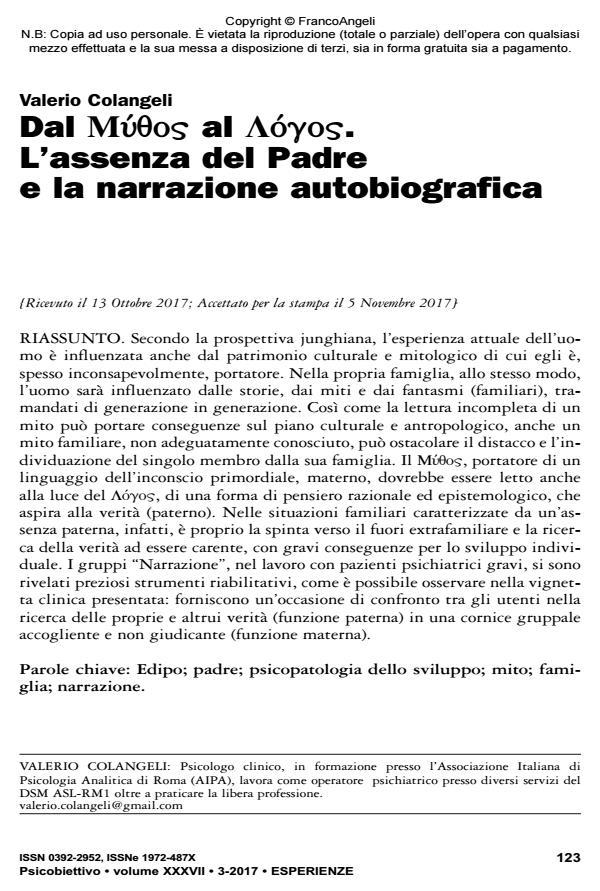From Muvqo" to Lovgo". Absence of father and autobiographical narrative
Journal title PSICOBIETTIVO
Author/s Valerio Colangeli
Publishing Year 2017 Issue 2017/3
Language Italian Pages 13 P. 123-135 File size 117 KB
DOI 10.3280/PSOB2017-003006
DOI is like a bar code for intellectual property: to have more infomation
click here
Below, you can see the article first page
If you want to buy this article in PDF format, you can do it, following the instructions to buy download credits

FrancoAngeli is member of Publishers International Linking Association, Inc (PILA), a not-for-profit association which run the CrossRef service enabling links to and from online scholarly content.
According to the Jungian perspective, the current human experience is influenced by the cultural and mythological heritage of which he is, often unconsciously, the bearer. Humans will also be affected by the family history, myths, and ghosts handed down from generation to generation. Just as an incomplete understanding of a myth can have consequences on the cultural and anthropological level, even a family myth that is not adequately comprehended can hinder the detachment and individualization of the person from his family. The Muvqo", the bearer of a an unconscious primordial and maternal language, should be read in the light of Lovgo", a form of rational and epistemological thought aspiring to the (paternal) truth. In family situations characterized by the absence of the father, it is the push towards the external family context and the search for the truth to be defective, with severe consequences for the individual development. "Narration" groups, working with psychiatric patients affected severely, have proved to be valuable rehabilitation tools, as can be seen in the clinical vignette proposed: they provide an opportunity for users to be confronted with searching their own and other truths (paternal function) in a welcoming and non-judgmental group framework (maternal function).
Keywords: Oedipus; Father; Psychopathology of Development; Myth; Family; Storytelling.
Valerio Colangeli, Dal Muvqo" al Lovgo". L’assenza del Padre e la narrazione autobiografica in "PSICOBIETTIVO" 3/2017, pp 123-135, DOI: 10.3280/PSOB2017-003006